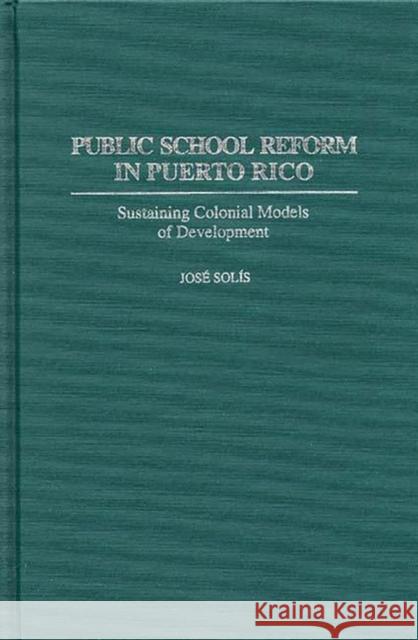Public School Reform in Puerto Rico: Sustaining Colonial Models of Development » książka
Public School Reform in Puerto Rico: Sustaining Colonial Models of Development
ISBN-13: 9780313289781 / Angielski / Twarda / 1994 / 184 str.
Puerto Rico's colonial history under the United States has shaped the character of development and education in that territory. In 1898, when the United States invaded Puerto Rico, the language, culture, and development of the latter was arrested by a colonialist mandate involving the social, political, and economic spheres. The role that the development of a mass public school system would play in sustaining colonial relationships was seen as paramount. Since then the developments in public school reform policies have contributed to and have been defined and determined within the linguistic and ideological framework of the colonizers' conceptualization of development for Puerto Rico. If development is more than growth, and if it includes self-determination and cultural expression within the context of political and economic arrangements, then Puerto Rico remains a classic example of colonialism 500 years after Columbus.











